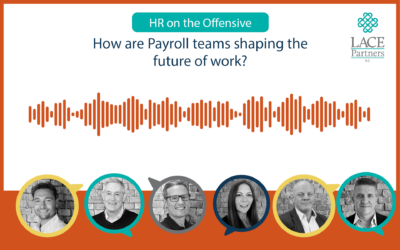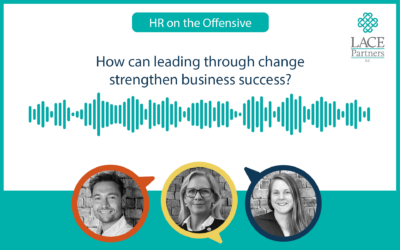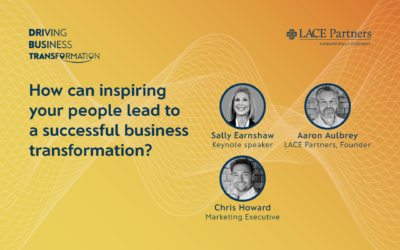In one of our latest pieces, Tim Ringo from our team takes a look at a recent article in The Times that focused on a government campaign to bring over-50’s out of retirement, assessing the impact for businesses. Could this be a talent pool that businesses can re-utilise?
Over-50’s encouraged to end early retirement
In Spring 2023, the government will launch a campaign to encourage the 630,000 people who left the workforce between 2019 and 2022, to return to work to help the UK fight off a recession. Data shows that most of these people are professionals who that took early retirement and are no longer contributing to the UK economy. The government is betting on these workers helping to fill the hundreds of thousands of job vacancies that cannot be filled by the current workforce.
Further data shows that six in ten who took early retirement would consider returning to the workplace. Part of the plan to encourage this skilled workforce back into employment is to offer a “financial MOT” to help people understand if they really have enough to retire on. A key part of understanding the bigger picture for people when they leave the workforce for the golf course.
So, is the UK economy poised for a revolution in how we think about traditional retirement? It would seem so, and the good news is, there is a word (and approach) for this new kind of retirement: “protirement”.
Wicktionary defines it as: “early retirement from professional work with the positive idea of pursuing something more fulfilling and contributing to society at large”
The term has been around for over 50 years, but until I came upon it in research for my recently published book, Solving the Productivity Puzzle (Kogan Page), I had never heard of it. The idea immediately resonated with me as circumstances in the 21st century lend themselves to making this career/lifestyle choice not only viable, but very compelling – for the workforce, but also for companies.
First, consider a few things….
-
- In 1940, the life expectancy of a 65-year-old was 14 years while in 2020 it’s over 20 years
- 76% of baby boomers plan to keep working and earning in retirement
- 42% of people are concerned about outliving their assets.
There is little doubt, that in most parts of the world, people are living longer and healthier lives than ever before. In industrialised economies, you only have to look back to the 1970’s to see the dramatic difference. Back then it was commonplace for people to retire in their 50’s or early 60’s as it was a period when many people had earned their company provided pension (and in many cases healthcare, as well). They had a virtually guaranteed income stream, so could support themselves and their spouse, once the children were grown. This was a very good situation for workers (and society), because the next generation of workers were coming of age, and room was needed for them to progress. Also, most senior workers had collected numerous health conditions over the years and were not able to work in a fully productive mode anymore. This was accepted as fact and part of the cycle of life, and HR organisations were used to handling this as part of normal business.
Today’s landscape should shift perceptions on protirement
Today, is very different. Due to a quiet revolution in health sciences and personal wellness, a large proportion of people in their 50’s, 60’s, 70’s and even 80’s are not only healthy, they are mentally alert and able, and have a desire to stay busy…both for financial reasons, but also for personal satisfaction.
We can work, want to work and in many cases, need to work, for life satisfaction and financial security. Additionally, several recent studies show that working in some gainful manner (both financially and occupationally) is good for your health and longevity. Particularly for men. In 2018, The UK’s Chief Medical Officer, announced findings from years of research, that showed that working in some meaningful manner until the age of seventy, increases life span in men up to twenty years. The combination of being physically and mentally active is exceptionally effective at keeping you going, and healthy.
Which gets to the second thing to consider: money. Health is one important thing, but just as important is financial security. Protirement, like retirement requires money. Once again, times have changed. Very few people have a fully (or even partial) salary pension awaiting them at 55 years old. The post Baby Boom generation has had to plan for private pensions and take a lot of the burden on themselves to have funds to look after themselves in old age. It’s been a paradigm shift in thinking, particularly for those who saw their Baby Boomer parents retire on nice company provided pension packages. Despite this, many post Baby Boomer generations have been rather poor at saving money. Data show a potential crisis in the future resulting from low savings rates.
So, it is true…. protirement entails careful planning, saving and, as it is with health, focus and discipline. It could be rather risky (and stressful) to drop the day job having not put in place a base for financial security for you and your family. However, one of the key upsides of protirement, is that you can use it to elongate the time where you save and invest and create more stable financial future for old age, all while creating better job and life satisfaction. Protirement, planned carefully, can help if you feel you need more time to create that nest egg. So, how does it work?
Over the course of a 20, 30, or 40-year career, we slowly build deep expertise, experience and learning that is worth a tremendous amount to the overall economy. It does not matter if you are a plumber, electrician, investment banker, flight attendant, IT worker or recently retired and have decided you want to do more with your life. For example: all of us build a “personal brand” from the stuff we know and there is a market out there for that knowledge, skill and expertise. In fact, this expertise is often lost to the economy when people either retire, downsize their career, or don’t optimize their “brand”. This is lost productivity in a global economy that needs more people producing.
The question is, do you continue to offer what you have in your current job, five days a week (perfectly ok), or do you try a different approach? One where you take what you know and offer yourself as a package of knowledge, skill and expertise on a schedule that fits your personal life, and for an organisation (or multiple organisations) that fits better to your personal interest and values. You could offer your “personal brand” to charity organisations, or local education authorities, or any other type of organisation that could benefit, and you enjoy. After all, protirement is ultimately about doing work that you find more fulfilling, on a schedule that allows more lifestyle time.
The upside for organisations is they get access to your expertise (which they are likely struggling to obtain), and they can access this talent, when and where they need it – and for less cost. The upside for society and the economy is “Protirees” can create more labour flexibility in the economy, helping get right people, in the right place, at the right time, with the right motivation. A “win-win”. Unfortunately, HR organizations, as they are today, are mostly set up to deal with traditional retirement and traditional workers, so often do not have the ability to retain, or hire protirees. This needs to change for the benefit of individuals and society.
Planning for protirement
To my mind, we have an opportunity to turn a looming talent and financial crisis into an opportunity if we act now, what about the personal financial side? First, I am no financial adviser, so will not pretend to give anyone money advice. However, one sign that protirement may be financially feasible is if you create enough financial capital to create a proportion of income upon which you can add your earnings from your protirement activities. An income to give you your monthly or annual financial base to support the lifestyle you wish to have. Some people who elect to protire, choose to down-size to reduce living costs and increase capital. Others may have more capital and choose to balance the investment income with protirement income to fund current (or even better?) lifestyle. The point is planning is important but understanding and determining how you want to live into the future is key. It drives the overall endgame and timing. Get some financial planning advice and see how you may plan and structure your financial future.
Think and do differently when it comes to the later years of workers’ careers. It is in the interest of organisations and their HR departments to change mindset, policies and processes to help workers to:
- Develop a personal brand of expertise
- Save money responsibly to enable a protirement career
- Find roles that allows them to utilise their latter-career skills. It creates a pool of unique talent to draw from and helps create engaged workforces that are less stressed about their future.
This is particularly important these days, in uncertain times. People won’t forget it, and everyone benefits.
As part of our late 2022 ‘One Big Thing’ campaign, we spoke to 30 CPOs and asked them what their one big strategic priority is for the next 18 – 24 months. We had a range of challenges that were suggested by these senior HR professionals from some of large businesses from a variety of sectors. The challenge of attracting talent was one of the most popular issues that were raised and finding new pools of talent to tap in to, perhaps that hadn’t previously been considered, has been topics of discussion at events we have run around the ‘One Big Thing’ campaign. What will you do… What will your organisation do to take advantage of the benefits of protirement?
If you would like to talk to us about the ‘One Big Thing’ campaign, what your strategic challenges are, or chat to one of our team about your talent attraction and retention issues, reach out to us using the form below.






